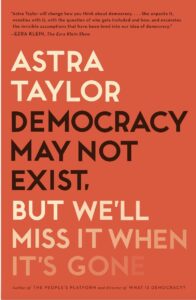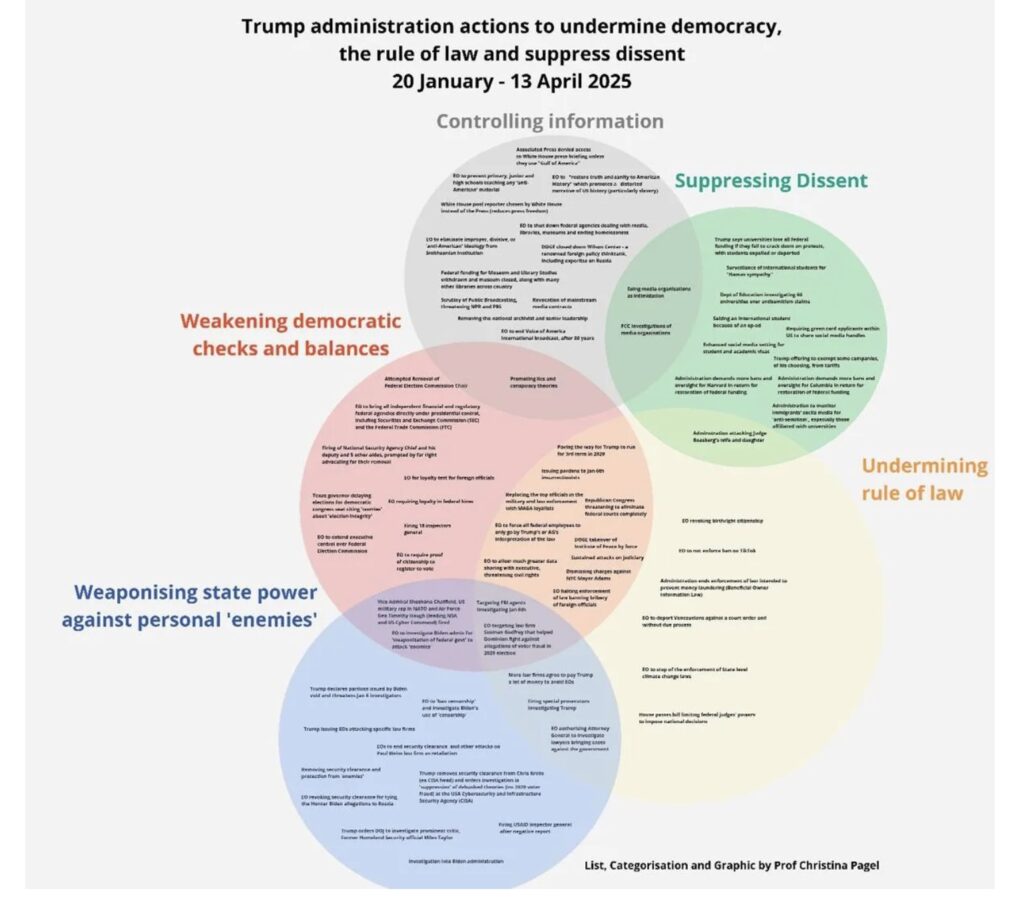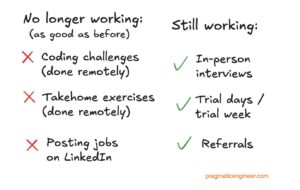Democracy?

Majority Rules, OK?
Quote of the Day
”When fascism comes to the United States it will be wrapped in the American flag and will claim the name of 100-percent Americanism.”
Musical alternative to the morning’s radio news
Aretha Franklin | Good to Me as I Am to You
Link
Long Read of the Day
The Next Terrorist Attack
In a sobering essay, historian Timothy Snyder does some thinking ahead which prompted me to do some thinking about the past. His argument is that the way the Trump regime is hollowing out or controlling many of the most important parts of the American national security system makes the country more vulnerable to a terrorist attack. He then goes on to explore what might happen if such an attack were to materialise, and in particular how it might be exploited by the regime in Washington.
In just three months, the Trump people have made the unthinkable much more likely. They have created the conditions for terrorism, and thus for terror management. This is true at several levels.
Most obviously, they have debilitated the services that detect terrorist threats and prevent attacks: the Central Intelligence Agency (CIA), the Federal Bureau of Investigation (FBI), the Department of Homeland Security (DHS), and the National Security Agency (NSA). The CIA is a foreign intelligence service. The FBI is the federal police force. The NSA, which specializes in cryptography and foreign signals intelligence, is part of the Department of Defense. Homeland Security is a cabinet-level department that amalgamates a number of functions from immigration control through disaster relief and anti-terrorism.
Overall guidance over the intelligence agencies is exercised by Tulsi Gabbard, who is known as an apologist for the now-overthrown Assad regime in Syria and the Putin regime in Russia. The director of the FBI is Kash Patel, an author of children’s books that promote conspiracy theories, and a recipient of payments from sources linked to Russia. Patel plans to run the agency from Las Vegas, where he resides in the home of a Republican megadonor. The deputy director of the FBI is Dan Bongino, a right-wing entertainer who has called the FBI “irredeemable corrupt” and indulged in conspiracy theories about its special agents…
At one point he quotes a passage from his book On Tyranny:
Modern tyranny is terror management. When the terrorist attack comes, remember that authoritarians exploit such events in order to consolidate power. The sudden disaster that requires the end of checks and balances, the dissolution of opposition parties, the suspension of freedom of expression, the right to a fair trial, and so on, is the oldest trick in the Hitlerian book.
What this brings to mind is the Reichstag Fire of February 1933. Here’s how Wikipedia describes what happened. It was
an arson attack on the Reichstag building, home of the German parliament in Berlin, on Monday, 27 February 1933, precisely four weeks after Adolf Hitler was sworn in as Chancellor of Germany. Marinus van der Lubbe, a Dutch council communist, was the culprit; the Nazis attributed the fire to a group of Communist agitators, used it as a pretext to claim that Communists were plotting against the German government, and induced President Paul von Hindenburg to issue the Reichstag Fire Decree suspending civil liberties, and pursue a “ruthless confrontation” with the Communists. This made the fire pivotal in the establishment of Nazi Germany.
The decree nullified key civil liberties of German citizens. It was used as the legal basis for the imprisonment of anyone considered to be opponents of the Nazis, and to suppress publications not considered “friendly” to the Nazi cause. It was one of the key steps in the establishment of a one-party Nazi state in Germany.
Now of course history doesn’t repeat itself. But then the lesson we learn from history, as some wag observed, is that we never learn from history.
You are descending into populist frustration. Thank you for continuing to hold
Yesterday’s Observer column:
Question: what are the eight most annoying words in the English language? Answer: “Your call is important to us … please hold.” But when you have turned into a gibbering wreck after 10 minutes of your valuable time have ticked away – intermittently punctuated by assurances that, while your tormentor is “experiencing high call volumes at the moment”, nevertheless your call is still important to him/her/it – you can take comfort in the thought that you are not alone. In fact, you belong to the majority of sentient beings in an industrial society like ours.
Thanks to a useful piece of market research, we now have an idea of the numbers of victims of this industrial practice – at least in the UK…
Read on
My commonplace booklet
Larry Summers on what’s happened to the US
From a conversation he had with Tasha Mounk
I’m feeling like I’m part of some kind of Kafkaesque economic tragedy. I think the master narrative, the big picture here, Yascha, is that the United States is turning itself into an emerging or a submerging market. There are set patterns that we associate with mature democracies. There are set patterns that we associate with developing countries, for which some people would use the term “banana republic.”
In mature democracies, it’s institutions that dominate; in banana republics, it’s personalities that dominate. In mature democracies, it’s the rule of law that governs interactions between businesses and between business and government; in emerging markets, it’s personalities, personal connection, and loyalty. In mature democracies, the central bank and finance sits with independence relative to politics; in emerging markets, that is much more in question. In mature democracies, the goal is interaction, openness, and prospering along with the world; in immature democracies, in emerging markets, it is nationalist economic policies tied to particular interests.
The United States in a stretch of a few short months is transforming from being the United States to being something much more like Juan Perón’s Argentina–and that is being recognized by markets. It’s being recognized in the economy. It’s being recognized by people…
He’s also struck — as I am — by the number of people who are now using burner phones when going to the US when leaving or returning to the US.
It’s been the case for a long time—I imagine you’ve done it too, Yascha—that when an American businessman or journalist or government figure goes to China, they don’t bring their usual cell phone. They bring a burner phone, which they’re going to discard afterwards so that they won’t be hacked. I’ve heard a half a dozen anecdotes within the last five days about people feeling a need for burner phones when they come to the United States from other countries. I’ve heard more than one anecdote of Americans taking a burner phone with them when they leave the country so that they’re not at risk of having their regular phone searched by the American government when they return. So it’s not just a market-economic thing. We are being seen the way authoritarian countries are usually seen, and that’s not something I ever expected from the United States.
He’s also good on Harvard’s resistance to Trump’s demands.
This Blog is also available as an email three days a week. If you think that might suit you better, why not subscribe? One email on Mondays, Wednesdays and Fridays delivered to your inbox at 5am UK time. It’s free, and you can always unsubscribe if you conclude your inbox is full enough already!





















